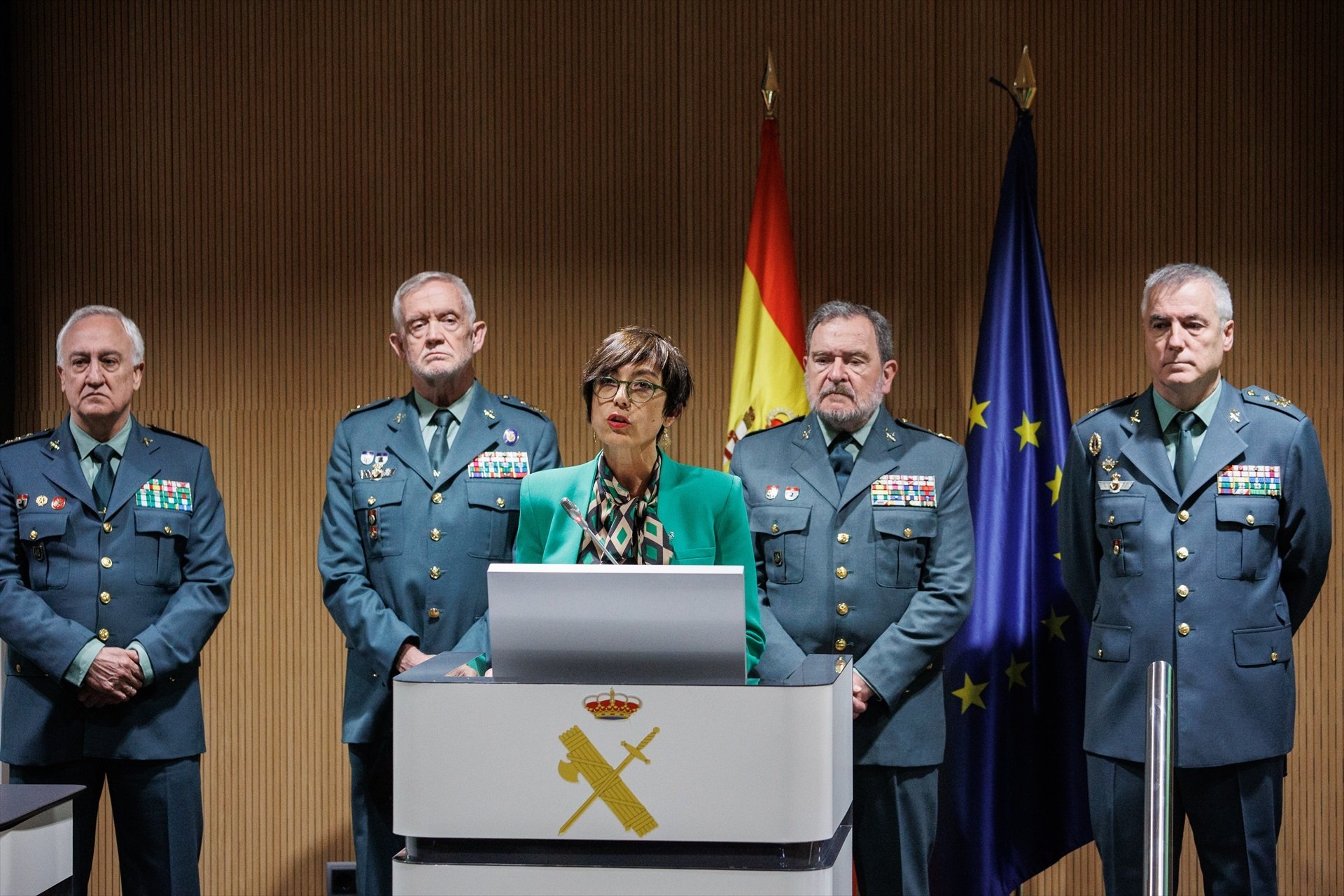The director of Spain's Civil Guard, María Gámez, resigned this Wednesday after her husband was indicted in a corruption case, which coincides with other scandals that have rocked Spain's paramilitary police force. She will be replaced in the position by the Spanish government delegate in Madrid, Mercedes González. Gámez had been director of the Civil Guard since January 2020, when Pedro Sánchez was returned as prime minister and before that she had also been a delegate of the Spanish government, in Malaga, as well as being politically active for the PSOE. Minutes after her decision became known, Gámez appeared before the press to explain herself, accompanied by other Civil Guard officers: "I am resigning as director general, a decision that I have communicated to the minister of the Interior and which I have adopted after learning that my husband has been indicted as part of judicial proceedings," she said. According to Gámez, it had been a difficult decision, but one that she took for two reasons: to protect her family and to protect the Civil Guard. "Without entering into the right to the presumption of innocence, I take this decision on principles, out of honesty and responsibility. I come from a personal and political culture in which values and ethics are above any project. In order to prevent anyone from using my personal situation to harm the Civil Guard, its representatives or the Spanish government".
Controversy surrounding Gámez's husband
At the end of February, the first information emerged about the husband of the now ex-director of the Civil Guard, following investigations in Andalusia focusing on a company owned by Bienvendio Martínez Martínez, Gámez's brother-in-law, for alleged irregularities in the contracting of services. Between 2009 and 2011, the Andalusian government made millions of irregular payments to the company in question, during the PSOE governments in Andalusia. The judge suspected that part of the public funds were diverted to the current accounts of other consulting firms created by the owner's brothers, Manuel and Juan Carlos Martínez. The latter is the husband of María Gámez, now-former director general of the Civil Guard.
Faced with this information, the People's Party (PP) began to launch accusations against the director of the para-military body, who, moreover, had her back against the wall due to the investigations into another alleged corruption case, the Casernas Case. Faced with this situation, the Spanish government began attacking the veracity of the accusations and pointing to political intention behind the leaks. In addition, the husband of the until-now police administrator was a former adviser in ministries and companies of the Andalusian government during the Socialist period. From the PP, Esteban González Pons demanded immediate explanations, which have not arrived until today with the resignation of María Gámez.
What is the Casernas Case?
The Casernas case is a case of corruption linked to a series of building renovations and repairs, of dubious necessity, in up to 13 Civil Guard barracks (or casernas), under the direction of Gámez. These contracts were granted as a result of falsifying contracts to avoid tender contests and to favour a group of companies owned by a Canary Island businessman, also linked to another case of corruption connected to Socialist political circles, the Mediador case. The businessman was over-paid for the work done, and in fact, some of the works were not even finished.

